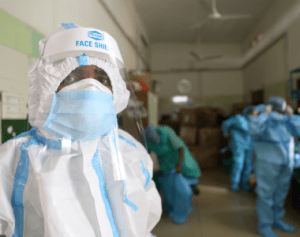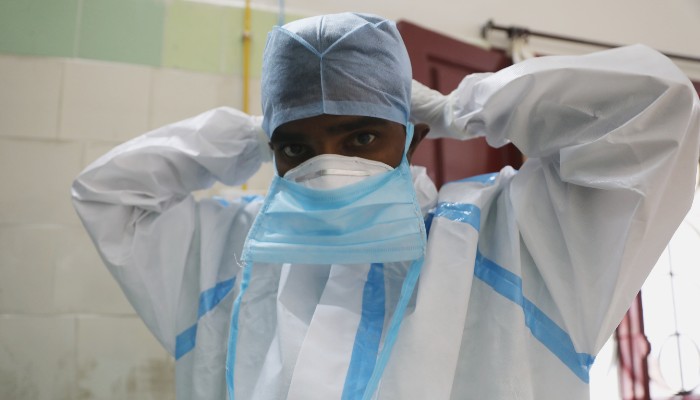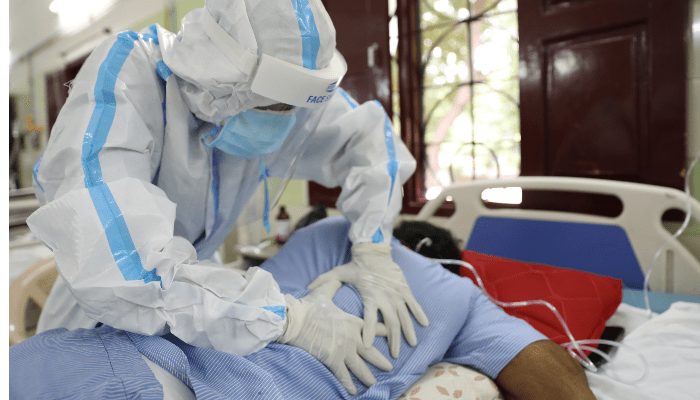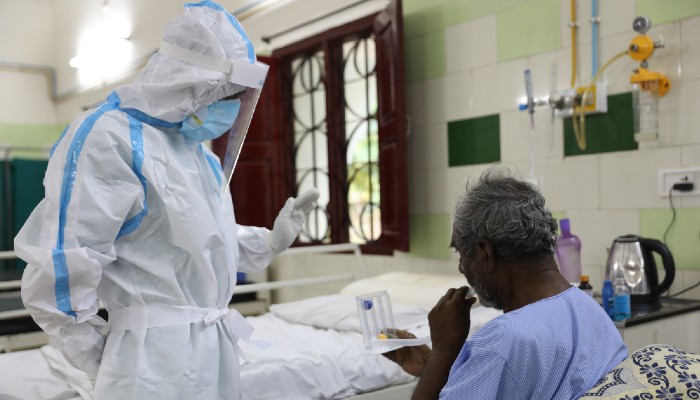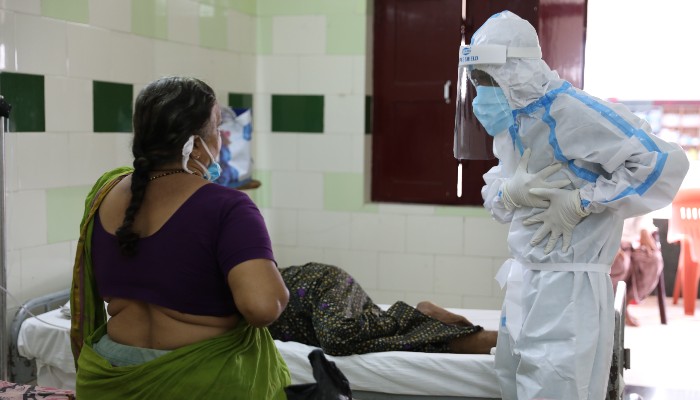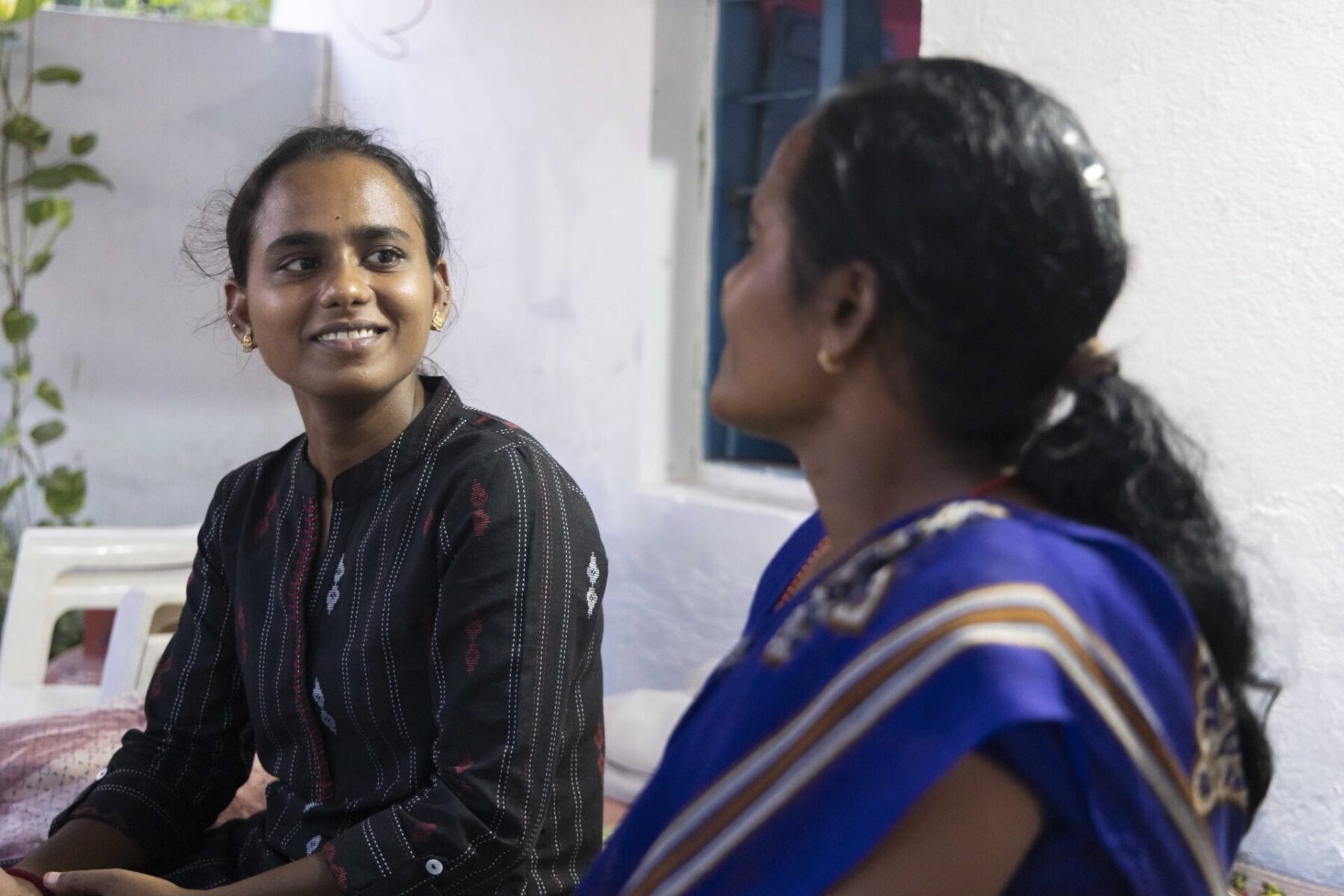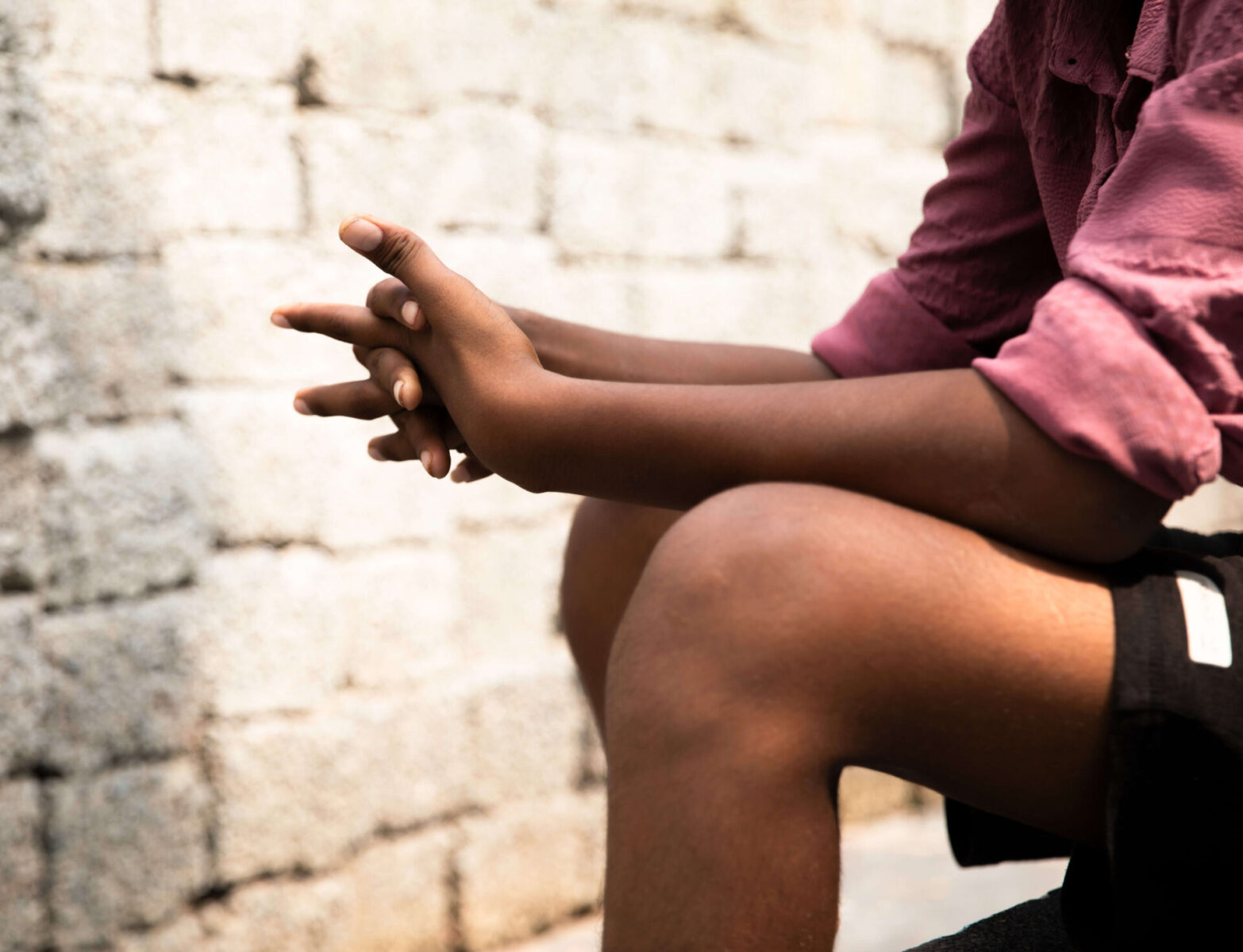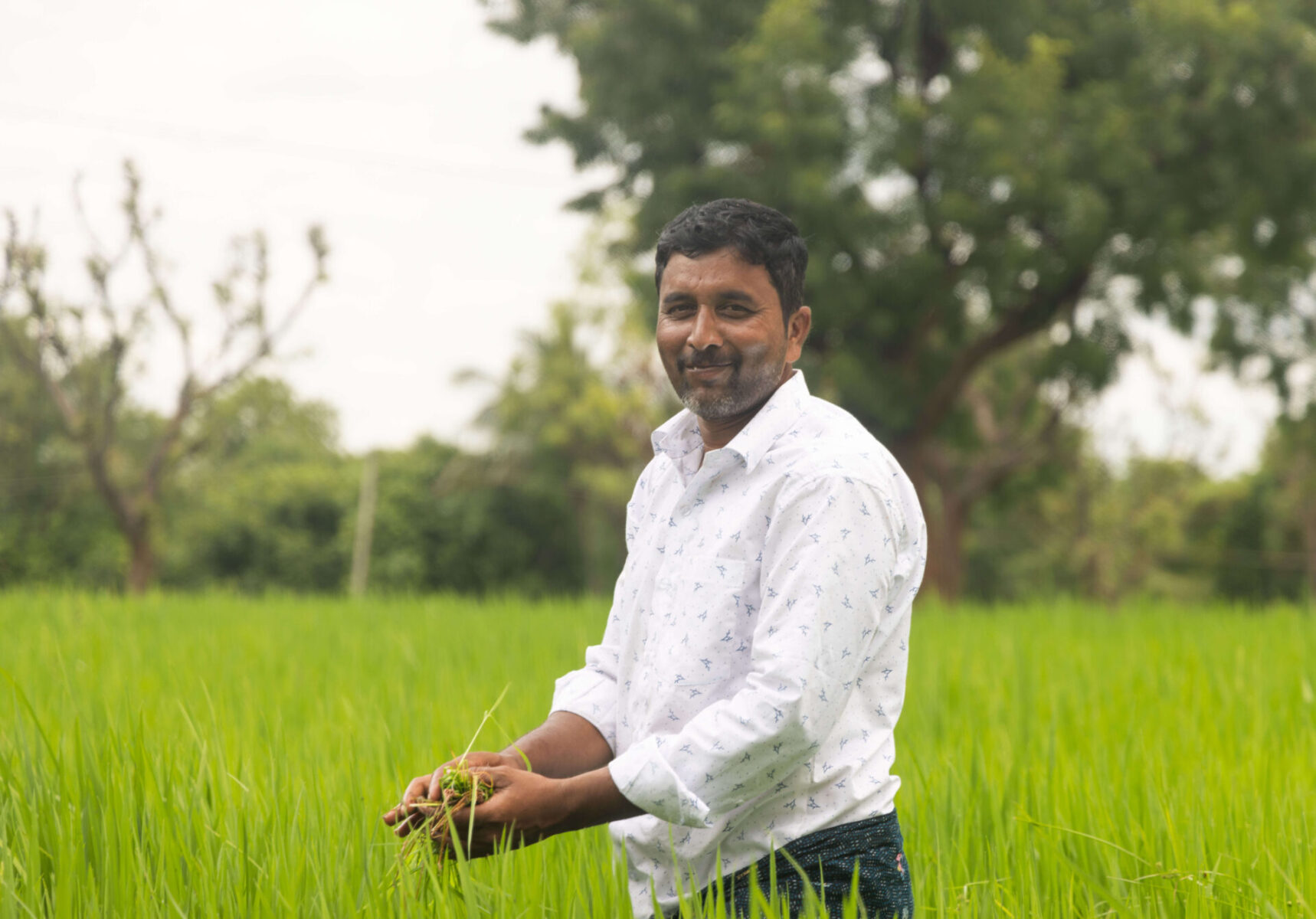Mohan is the physiotherapist at RDT Bathalapalli Hospital who has played a vital role during the COVID-19 outbreak, even though his field of expertise is still not acknowledged among other hospitals in the region.
He joined RDT Bathalapalli Hospital in September 2015 after seeing an advertisement on the newspaper. However, his relation with RDT started when he was a young boy. “I used to attend RDT Supplementary School in the village and be part of the cultural events organized at that time. My mum still attends the women sangham meetings and my parents live in a beautiful RDT House. Even my son has been born in Bathalapalli Hospital”, he remarks. “I come from a very poor family but both my family and RDT supported me to pursue higher education, and today here am,” Mohan states proudly.
Though practicing many years as a physiotherapist, the experience of what has happened in Bathalapalli over the past few months, when the Hospital was appointed as a COVID- 19 Centre, has been surreal according to him.
What was your reaction when you got to know that Bathalapalli Hospital was appointed as a COVID-19 Centre?
At first, I felt worried about my family, my wife and my two children, 7 and 4 years old. My children always hug me when I reach home, and with the current virus, this small gesture seemed dangerous, at least at the beginning when we did not have much information.
The management of the hospital provided all of us with very extensive and regular training updates for COVID-19, about how it spreads and how to keep our families and ourselves safe while ensuring the best possible treatment for our patients. Their words gave me courage.
Why do COVID-19 patients’ need physiotherapy?
Physiotherapy is important as it helps to increase the lung capacity and its strength. Most of the COVID 19 patients I have treated over the last 6 months faced breathing and respiratory problems so I mainly encouraged them to exercise to increase their respiratory capacity like clapping therapy and blowing exercises. I also motivated them to move their arms and legs if they have been lying on bed for long hours. Implementing such breathing exercises as part of their treatment improved their condition.
Personally, I feel there is something just as equally important to the medical treatment and physical exercise, and that is the mental health and emotional wellbeing of the patient. I was able to take part in that.
Most of the patients came to the hospital assuming that they were going to die. They were alone, scared and terrified of being in a hospital suffering from an unknown and stigmatized virus.
Which role do you play in that?
I always spend some time individually with each patient. I am not sure if they understood what my role was but before starting any exercise I had a small conversation with them, a bit of small talk, asked them how they were, how they were feeling. Only after that , I proceeded with the exercises. As a result of that, many patients opened up to me. They explained me how they felt, their fears and anxieties and I provide them with support, advice and the opportunity to express themselves. Some used to tell me “I do not want to die”, how would you respond to that?
I have witnessed how being mentally healthy and strong has a direct impact on the recovery of the person. The same way that I have witnessed people dying of fear.
During July, August and September the hospital was at its full capacity. How did you manage at that time?
I used to do physiotherapy for all the patients staying at level 1, level 2 and ICU. However, during the months of August when the number of severe COVID-19 patients increased I was only treating level 2 and ICU patients. That could be between 80 to 100 patients a day. Taking into account that I had to change my PPE every time I changed ward and I spent about 15 minutes each time, it was tough but all my colleagues were working diligently. We had no choice.
Did you always wanted to work in the health sector?
When I was a child, my dad fractured his leg. At that time, my family took him for herbal medicine. He recovered but his leg was never straight again. He had to live with that problem forever because at that time we did not even know that there was something such as physiotherapy.
For him it is already too late but if with my work can help others in that same situation, I am happy to do it.

